I have the following VBA code which it being compiled and executed inside AutoCAD 2014 (64 bit):
Option Explicit
Type HatchData
iTag As Integer
iType As Integer
strPattern As String
dScale As Double
strLayer As String
End Type
Public Sub UpdateHatches()
Dim mapHatches As Collection
Call ReadHatchINI(mapHatches)
MsgBox "Finished"
End Sub
Private Function ReadHatchINI(ByRef mapHatches As Collection)
Dim vPath As Variant
vPath = m_cREG.QueryValue("Software\PathXXX", "HatchesPathINI")
With m_cINI
.path = vPath
.Section = "Hatches"
.Key = "NumHatches"
.Default = 0
Dim iHatch As Integer, iNumHatches As Integer
Dim strHatchData As String
Dim aryStrTokens() As String
iNumHatches = .Value
.Default = ""
For iHatch = 1 To iNumHatches
.Key = "Hatch" & CStr(iHatch)
strHatchData = .Value
If (strHatchData <> "") Then
aryStrTokens = Split(strHatchData, " ", , vbTextCompare)
' TODO: Is it OK to declare the variable here ?
Dim oHatchData As HatchData
oHatchData.iTag = aryStrTokens(0)
oHatchData.iType = aryStrTokens(1)
oHatchData.strPattern = aryStrTokens(2)
oHatchData.dScale = aryStrTokens(3)
oHatchData.strLayer = aryStrTokens(4)
' TODO: Can't pass this HatchData object
Call cSet(mapHatches, CStr(oHatchData.iTag), oHatchData)
End If
Next
End With
End Function
Private Sub cSet(ByRef Col As Collection, Key As String, Item As Variant)
If (cHas(Col, Key)) Then Col.Remove Key
Col.Add Array(Key, Item), Key
End Sub
Private Function cGet(ByRef Col As Collection, Key As String) As Variant
If Not cHas(Col, Key) Then Exit Function
On Error Resume Next
Err.Clear
Set cGet = Col(Key)(1)
If Err.Number = 13 Then
Err.Clear
cGet = Col(Key)(1)
End If
On Error GoTo 0
If Err.Number <> 0 Then Call Err.Raise(Err.Number, Err.Source, Err.Description, Err.HelpFile, Err.HelpContext)
End Function
Public Function cHas(Col As Collection, Key As String) As Boolean
cHas = True
On Error Resume Next
Err.Clear
Col (Key)
If Err.Number <> 0 Then
cHas = False
Err.Clear
End If
On Error GoTo 0
End Function
Private Sub cRemove(ByRef Col As Collection, Key As String)
If cHas(Col, Key) Then Col.Remove Key
End Sub
Private Function cKeys(ByRef Col As Collection) As String()
Dim Initialized As Boolean
Dim Keys() As String
For Each Item In Col
If Not Initialized Then
ReDim Preserve Keys(0)
Keys(UBound(Keys)) = Item(0)
Initialized = True
Else
ReDim Preserve Keys(UBound(Keys) + 1)
Keys(UBound(Keys)) = Item(0)
End If
Next Item
cKeys = Keys
End Function
I have a specific issue related to this code:
' TODO: Can't pass this HatchData object
Call cSet(mapHatches, CStr(oHatchData.iTag), oHatchData)
This is the VBA error message that displays when I try to run it:
How can I change the code so that I can populate my collection?
Thank you !
Andrew
